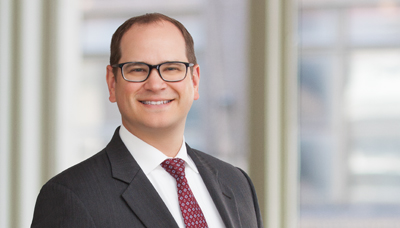The National Institute of Standards and Technology (NIST) has proposed new rule revisions to 37 C.F.R. §§ 401 and 404. The rules provided in these two sections are promulgated under the University and Small Business Patent Procedures Act of 1980, codified as 35 U.S.C. § 200 et seq., which is commonly known as the “Bayh-Dole Act.” The Bayh-Dole Act provides a mechanism for small businesses and nonprofit organizations (together referred to as contractors) to retain rights to intellectual property conceived or first actually reduced to practice in the performance of work that is funded at least in part by certain federal funding agreements. Specifically, the Bayh-Dole Act laid the foundation for rules and timelines for contractors to disclose inventions to federal agencies, elect title to inventions, file initial patent applications, provide on-going maintenance requirements, and maintain licensing requirements for technology and methods subject to the act.
Due to the uncertainty surrounding the recent executive order from the new administration (mandating that two federal rules are to be revoked for every new federal rule), the final rule has yet to be implemented. It is unclear at this time if the executive order will apply since the proposed rule revises existing regulation instead of creating an entirely new regulation. Moreover, all proposed regulations must be further reviewed by a member of the Presidential transition team. Therefore, the date of implementation of the final rule is currently unknown.
The proposed rule revisions clarify some of the definitions found in 37 C.F.R. § 401.2. Specifically, the term “contractors” is revised to include any business firm, regardless of size, which is party to a federal funding agreement. The term “statutory period” is clarified to refer to the one-year period in 35 U.S.C. § 102(b) for filing patent applications. Additionally, the phrase “initial patent application” is revised to include international applications, as well, as provisional and non-provisional applications.
Furthermore, the proposed rules change the timeline obligations for contractors’ and agency actions as shown in the following table.
Additionally, the proposed rule revisions give an agency the right, at its discretion and in consultation with the contractor, to file an initial patent application on any invention with agency and contract inventors. Further, the proposed changes clarify the obligation of the contractor to execute assignments from contractor inventors for the entire right, title, and interest in and to each subject invention made under contract.
Of note, these proposed rule revisions do not address contractor appeals of exceptions (§?401.4), exercise of march-in rights (§?401.6), small business preference (§?401.7), subject invention utilization reporting (§?401.8), contractor employee inventor rights retention (§?401.9), appeals (§?401.11), background patent rights licensing (§?401.12), patent rights clauses administration (§?401.13), or deferred determinations (§?401.15) of part 401, and addresses only the license application provision (§?404.8) of part 404.
The proposed rule revisions to 37 C.F.R. §§ 401 and 404 were at least intended to make technical corrections, update certain sections to conform with changes in the patent laws, and increase the role of funding agencies in the Bayh-Dole process. The revisions may increase the burden on contractor obligations and may reduce timelines for decision-making. In accepting federal funding, contractors should be fully aware of the obligations attached to those funds.
Further information can be found here.
To obtain more information, please contact Higher Education Practice Group member Eric Williams at 317-231-6410 or eric.williams@btlaw.com or the Barnes & Thornburg attorney with whom you work.
© 2017 Barnes & Thornburg LLP. All Rights Reserved. This page, and all information on it, is proprietary and the property of Barnes & Thornburg LLP. It may not be reproduced, in any form, without the express written consent of Barnes & Thornburg LLP.
This Barnes & Thornburg LLP publication should not be construed as legal advice or legal opinion on any specific facts or circumstances. The contents are intended for general informational purposes only, and you are urged to consult your own lawyer on any specific legal questions you may have concerning your situation.
Visit us online at www.btlaw.com and follow us on Twitter @BTLawNews.












/Passle/6488d4630e7e25c9ac9f834a/SearchServiceImages/2024-11-14-13-11-27-495-6735f6fff42d6cc59c8ec5c1.jpg)
/Passle/6488d4630e7e25c9ac9f834a/SearchServiceImages/2024-11-11-22-02-38-042-67327efe31216b909e6ea644.jpg)
